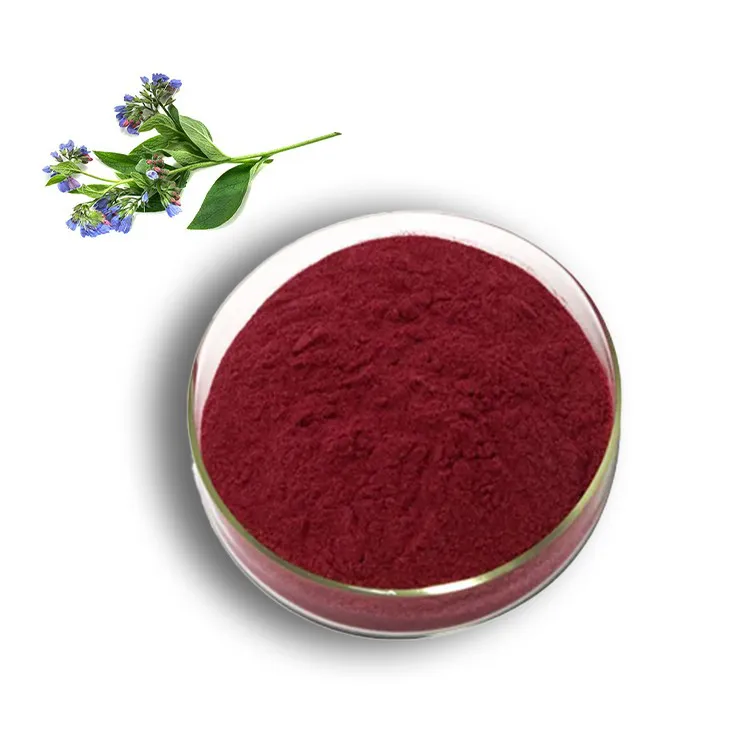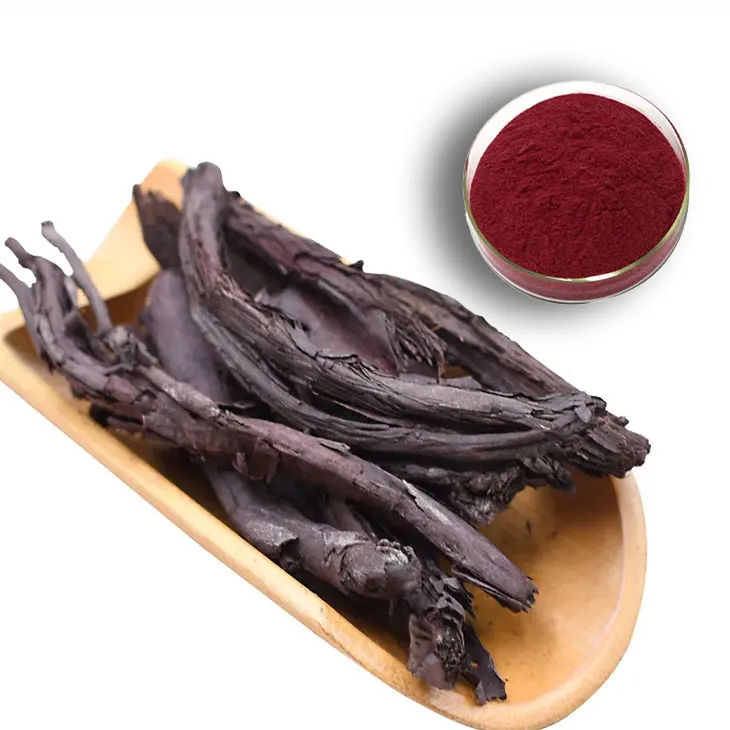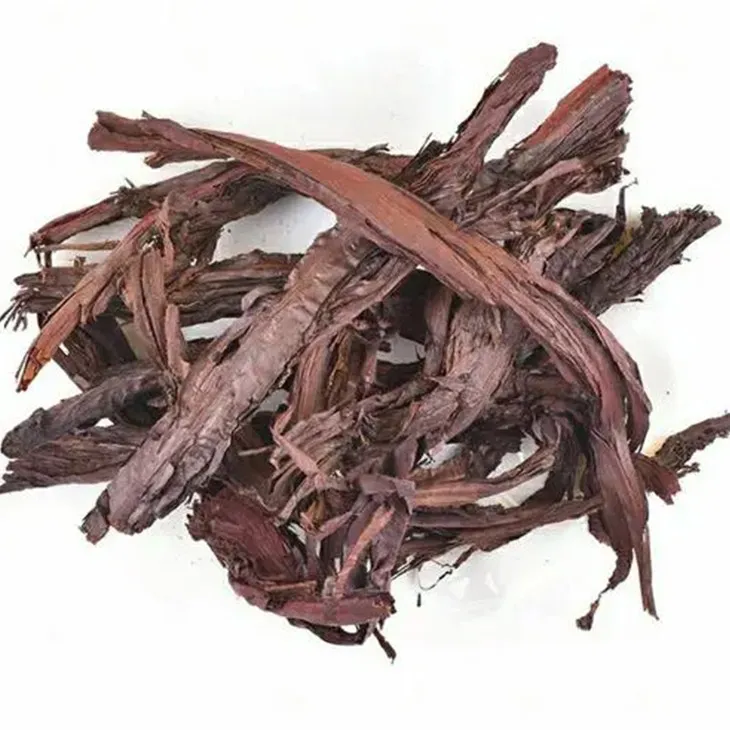- 0086-571-85302990
- sales@greenskybio.com
Shikonin: Benefits, Uses and How It Improves Your Home.
2024-11-13

1. Introduction to Shikonin
Shikonin is a natural compound that has been garnering increasing attention in recent years. It is derived from the roots of the plant Lithospermum erythrorhizon, which has a long history of use in traditional medicine in some Asian cultures. Shikonin is a red - colored naphthoquinone derivative, and its unique chemical structure endows it with a variety of interesting properties.

2. Health Benefits of Shikonin
2.1 Anti - inflammatory Properties
One of the most significant health benefits of shikonin is its anti - inflammatory action. Inflammation is a natural response of the body's immune system to injury or infection. However, chronic inflammation can lead to a host of health problems, including autoimmune diseases, heart disease, and certain types of cancer. Shikonin has been shown to inhibit the production of pro - inflammatory cytokines, such as interleukin - 1β (IL - 1β) and tumor necrosis factor - α (TNF - α). By doing so, it helps to reduce inflammation at the cellular level, potentially alleviating symptoms associated with inflammatory conditions.
2.2 Antimicrobial Activity
Shikonin also exhibits strong antimicrobial properties. It has been found to be effective against a wide range of bacteria, fungi, and viruses. For bacteria, shikonin can disrupt the bacterial cell membrane, leading to leakage of intracellular components and ultimately cell death. In the case of fungi, it can interfere with fungal growth and reproduction. Regarding viruses, while the exact mechanisms are still being investigated, shikonin has shown promise in inhibiting viral replication. This antimicrobial activity makes shikonin a potential candidate for the development of new drugs to combat infectious diseases.
2.3 Anticancer Potential
The anticancer potential of shikonin is another area of great interest. Studies have suggested that shikonin can induce apoptosis (programmed cell death) in cancer cells. It does this by targeting various cellular pathways involved in cell survival and proliferation. For example, shikonin may affect the mitochondria, the "powerhouses" of the cell, causing a release of cytochrome c, which is a key step in the apoptotic process. Additionally, it can inhibit the activity of certain enzymes that are overexpressed in cancer cells, such as topoisomerase II. However, more research is needed to fully understand its potential as a cancer treatment and to develop safe and effective shikonin - based anticancer therapies.

3. Uses of Shikonin in Medicine
Given its health - promoting properties, shikonin has several applications in medicine.
3.1 Traditional Medicine
In traditional Asian medicine, extracts containing shikonin have been used for centuries to treat various ailments. It has been used topically to heal wounds, burns, and skin infections. The anti - inflammatory and antimicrobial properties of shikonin make it an ideal ingredient for treating skin problems. For internal use, it has been used to treat digestive disorders, such as diarrhea and abdominal pain, although the exact mechanisms for these internal uses are not as well - understood as its topical applications.
3.2 Modern Pharmaceutical Research
Today, shikonin is being actively studied in modern pharmaceutical research. Scientists are exploring ways to develop shikonin - based drugs or drug combinations. For example, in the treatment of inflammatory diseases like rheumatoid arthritis, shikonin or its derivatives could potentially be developed into new medications. Researchers are also looking at its use in combination with other chemotherapy agents for cancer treatment, with the aim of enhancing the efficacy of existing treatments while reducing side effects.

4. Shikonin in Household Items
4.1 Skin Care Products
Shikonin has found its way into the world of skin care. Due to its anti - inflammatory and antimicrobial properties, it is a valuable ingredient in various skin care products. Skincare creams and lotions containing shikonin can be beneficial for people with acne - prone skin. Shikonin can help reduce the inflammation associated with acne breakouts and also prevent the growth of bacteria that contribute to acne. It can also be used in products for sensitive skin, as it has a soothing effect and can help repair damaged skin barriers.
4.2 Home Cleaning Products
Shikonin's antimicrobial properties make it a potential ingredient in home cleaning products. For example, it could be incorporated into all - purpose cleaners or disinfectants. A cleaner containing shikonin would not only clean surfaces but also help to kill bacteria, viruses, and fungi, reducing the risk of infections in the home environment. This is especially important in areas such as kitchens and bathrooms, where there is a higher likelihood of microbial growth.
4.3 Textile and Fabric Applications
Shikonin can also be used in the textile industry. It can be applied to fabrics as a natural dye, giving a unique red color. Moreover, the antimicrobial properties of shikonin can be imparted to the fabric, creating self - disinfecting textiles. This could be useful in applications such as hospital linens, where preventing the spread of infections is crucial, or in sportswear, where odor - causing bacteria can be a problem.
5. How Shikonin Improves Your Home
5.1 Healthier Living Environment
By using shikonin - based cleaning products, you can create a healthier living environment. As mentioned earlier, these products can kill harmful microorganisms, reducing the spread of diseases within the home. This is particularly important for households with young children, the elderly, or individuals with weakened immune systems. For example, using a shikonin - containing disinfectant on kitchen countertops can prevent the growth of food - borne bacteria such as Salmonella and E. coli.
5.2 Enhanced Skin Health
Using shikonin - containing skin care products can improve the skin health of family members. Whether it's for treating skin conditions like eczema or simply for maintaining healthy skin, shikonin can play a role. In a family setting, having products like shikonin - based moisturizers or anti - acne creams can help everyone keep their skin in good condition.
5.3 Aesthetic Appeal with Shikonin - Dyed Fabrics
Shikonin - dyed fabrics can add an aesthetic appeal to your home. The natural red color of shikonin can be used to create beautiful curtains, tablecloths, or cushion covers. These items can add a warm and unique touch to your home decor. And as they also have antimicrobial properties, they can be both beautiful and functional.
6. Conclusion
Shikonin is a remarkable compound with a wide range of benefits and uses. From its health - related advantages in treating inflammation, infections, and potentially cancer, to its applications in household items such as skin care products, cleaning products, and textiles, it has the potential to make a significant impact on our lives. As research continues, we can expect to see more innovative uses of shikonin in improving our health and enhancing our home environments.
FAQ:
What are the main health benefits of Shikonin?
Shikonin has several health benefits. It has been shown to possess anti - inflammatory properties, which can help in reducing inflammation in the body. It also has antioxidant effects, combating free radicals and potentially reducing oxidative stress - related damage. Additionally, it may have antimicrobial activity against certain bacteria and fungi.
How can Shikonin be used in household items?
Shikonin can be used in various household items. For example, it can be incorporated into natural cleaning products due to its antimicrobial properties. It may also be used in fabric dyes, providing a natural and potentially more environmentally friendly alternative to synthetic dyes. Some home - made beauty products for skin and hair care may also contain Shikonin.
Is Shikonin safe for use in home improvement?
When used properly, Shikonin can be relatively safe for home improvement applications. However, it is important to follow the recommended guidelines. For example, if using it in cleaning products, make sure to keep it out of reach of children and pets. In the case of using it as a dye, proper handling and ventilation are necessary to avoid any potential allergic reactions or inhalation of fumes.
Can Shikonin improve the air quality in the home?
While Shikonin itself may not directly improve air quality in the traditional sense like a purifier does, its antimicrobial properties can potentially help in reducing the growth of microorganisms in the home. By inhibiting the growth of bacteria and fungi on surfaces, it can contribute to a cleaner and healthier home environment, which may have an indirect positive impact on air quality.
What are the different forms of Shikonin available for home use?
Shikonin is available in different forms for home use. It can be found in a purified extract form, which is often used in making natural remedies or added to other products. It may also be part of pre - made products such as natural cleaning sprays, fabric dyes, or beauty creams that are sold in the market.
Related literature
- The Versatile Applications of Shikonin in Daily Life"
- "Shikonin: A Natural Compound for Home and Health"
- "Beneficial Effects of Shikonin on Household Environment"
- ▶ Hesperidin
- ▶ citrus bioflavonoids
- ▶ plant extract
- ▶ lycopene
- ▶ Diosmin
- ▶ Grape seed extract
- ▶ Sea buckthorn Juice Powder
- ▶ Beetroot powder
- ▶ Hops Extract
- ▶ Artichoke Extract
- ▶ Reishi mushroom extract
- ▶ Astaxanthin
- ▶ Green Tea Extract
- ▶ Curcumin Extract
- ▶ Horse Chestnut Extract
- ▶ Other Problems
- ▶ Boswellia Serrata Extract
- ▶ Resveratrol Extract
- ▶ Marigold Extract
- ▶ Grape Leaf Extract
- ▶ blog3
-
Cranberry Plants and Skin - care Products.
2024-11-13
-
Grape Seed Extract
2024-11-13
-
Polygonum multiflorum extract
2024-11-13
-
Motherwort Extract
2024-11-13
-
Citrus Aurantium Extract
2024-11-13
-
Mulberry Extract
2024-11-13
-
Feverfew Extract
2024-11-13
-
Bayberry Extract
2024-11-13
-
Cassia Seed Extract
2024-11-13
-
Green Tea Extract
2024-11-13
-
Boswellia Serrata Extract
2024-11-13





















